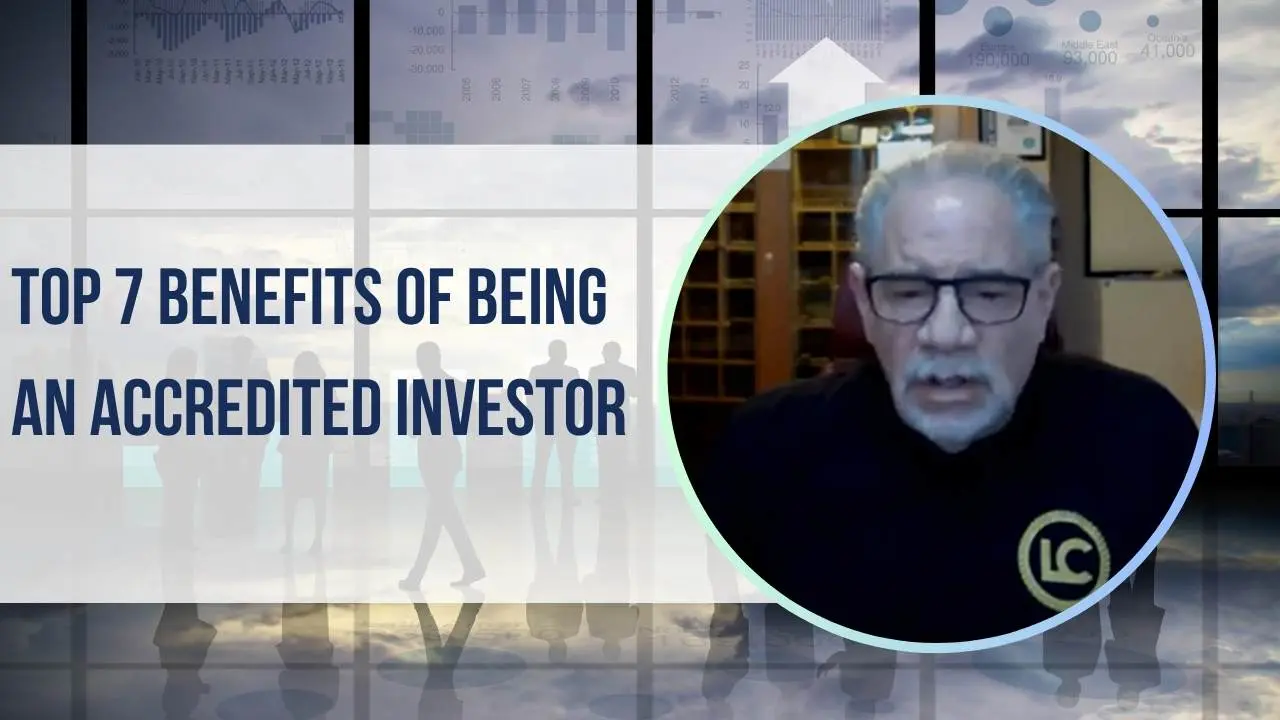Accredited investors describe investors who have met certain financial criteria concerning certain treatments for the U.S. Securities and Exchange Commission. Such criteria mostly entail high net worth or income per year. This gives accredited investors one more advantage as it provides them with access to high-yield opportunities not available to the general public. Let’s have a look at the benefits of being an accredited investor.
7 Benefits Of Being An Accredited Investor
Higher Yield Opportunities
When a firm raises capital outside the public capital markets, it most likely uses the private placement method one of the best benefits of being an accredited investor. In general, private placements offer a higher yield than public market investments, because the underlying issuer can obtain very attractive capital. Accredited investors can participate in these high-yield opportunities. Platforms like Percent facilitate easier access to these higher-yield investments, allowing accredited investors to earn substantial returns on investment.
Opportunity for investment into small businesses
As an accredited investor, you can invest your money in other small businesses whose missions are meaningful to you. Through platforms such as AngelList, a variety of startups at almost any stage of development will be made available to you. For example:
- Percent sources working capital finance deals for:
- Food manufacturers
- E-commerce companies
- Other small businesses
This creates a unique opportunity for investors to invest in and help small businesses grow.
Diversify Your Portfolio
For instance, with investments purely placed in the public markets, one can have severely constrained diversification opportunities. As interest rates go higher, one has to find alternative assets to invest in. These investment opportunities are generally uncorrelated with the public markets, which thus provide the accredited investor with not only lowered exposure to systematic risk but also a more balanced and resilient investment portfolio compared to that of a purely public market portfolio.
Exemption from SEC Registration
Accredited investors are of a specific investment profile that the Securities and Exchange Commission recognizes. This affords access to investments denied to regular investors. Selling to accredited investors exempts your small business from registering any securities with the SEC under rules 505 and 506 of Regulation D. In this respect, it means the investment process for your business will be easier, less time-consuming, and less costly.
Private Stock Offering
The target group here is the accredited investors, who form a big target when it comes to private stock offerings. Private stock offerings are sales of shares of stock to accredited investors. It is one of the best benefits of being an accredited investor as small businesses raise money by offering stock to accredited investors.
- When information is provided to the investors about the potential sale of stock, they will find a huge volume of information about:
- The company
- The stocks being sold
After all this information is offered to the investors, they are then faced with a decision to invest in these stocks. In addition, businesses will need to send the Accredited Investor Questionnaire Form to determine the accredited status of the investor to comply with the SEC.
Important Assets
Accredited investors are individuals or entities of high net worth. By meeting specific financial requirements, they are considered accredited—in other words, they have serious money with which to invest. Such investors may have previously worked with hedge funds or another type of exclusive investment that also demands the same type of high financial standards. By attracting accredited investors, you reach someone who can invest massive capital in your business so that it achieves the wherewithal for growing and developing.
Make More Money
Another benefit of being an accredited investor is that it can yield higher returns. Accredited investors can target returns above the stock market average of 8%. Development deals that are considered more risky could offer internal rates of return of 15% to 25%. By learning and working with seasoned investors and running due diligence, accredited investors can make splendid returns.
- For instance:
- While an average return of 8% may double your money in nine years,
- A higher return of 12% can double your funds in just six years.
Conclusion
Some of the benefits of being an accredited investor are investment opportunities that the average person is not able to obtain. They get higher-yield opportunities, use small business support, diversify their portfolio, take advantage of exemptions from registration with the SEC, participate in private stock offers, enjoy the benefit of tremendous assets, and experience higher returns. Such a status does not solely promise financial benefits; it also allows people to invest in large projects.
If you have any questions about the accredited investor lead call me: 561-981-8777. Have a beautiful day, thanks for coffee, Vicky. God bless.
Frequently Asked Questions
What does it take for a person to be an accredited investor?
An individual who has an individual or joint net worth over $1 million, exclusive of their primary residence, or whose individual income was more than $200,000 in each of the two most recent years (or $300,000 with a spouse).
How does that benefit you as an accredited investor?
Potential for increased yield, portfolio diversification, SEC registration exemption, opportunity for private stock purchases, substantial assets, and more returns.
How can accredited investors invest in small businesses?
On AngelList and Percent, connecting investors to startups and SMBs.
Why does an accredited investor need the portfolio to be diversified?
It reduces systematic risk by investing in alternative assets that are not correlated with public markets.
What is a private stock offering?
A capital-raising technique in which a business sells shares directly to accredited investors, and the business does not require filing with the SEC.
